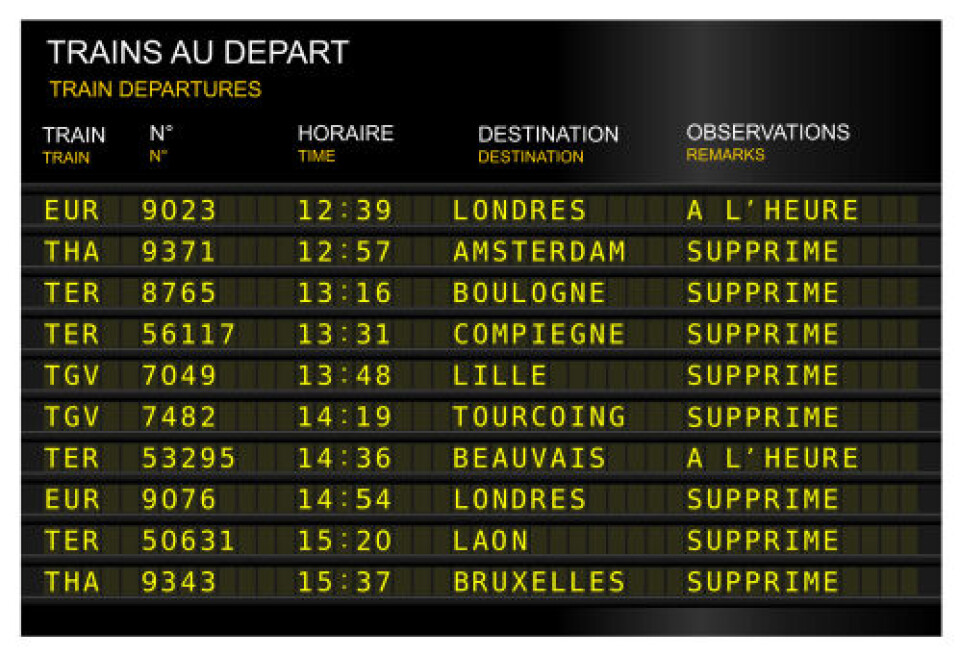-
Rugby vocabulary to know if watching the Six Nations in France
From un tampon to une cathédrale, understand the meaning of key French rugby terms
-
Bavarde, commérages: how to describe having a chat or gossip in French
One phrase has its origins in the 16th century and could easily be mistranslated
-
Tati, toutou, toc-toc: French and its love of doubled-up words
We look at common phrases and words using repetition and Connexion readers share their examples
French you don’t learn at school: When jargon goes round the houses
We look at the euphemisms employed by the French transport industry to announce delays and problems

Bad news is often presented euphemistically or in a roundabout way – in order to shroud seriousness or soften the blow for the receiver of doomy information.
None more so in France than when the train station announcer informs passengers that the next service to Montparnasse is delayed by one hour, or all TGVs to Rennes have been cancelled due to yet another strike (grève).
Such linguistic slight of hand was recently highlighted by one of Le Figaro's witty langue française (French language) writers in their amusing takedown of the RATP (Régie autonome des transports parisiens) – the state-owned public transport operator (metro, bus, trams, etc) headquartered in Paris.
The announcers, said the newspaper, prefer to talk of "allongement du temps de parcours" (longer journey times) instead of the more succinct – and honest – "retard" (delay).
When there are mechanical or manpower issues, the firm uses non-specific phrases like "défaut de matériel" (equipment defect) or "problème d’exploitation" (operational difficulty).
When more than one thing is causing delays, say on the métro, a reason given might be "en raison d’incidents divers", which is "due to various incidents" – the vagueness of which often frustrates passengers much more than knowing the real, usually legitimate, reason for a hold-up.
Looking nationally, one has to wonder whether the recent appointment of the Gers-born career public servant and former Prime Minister Jean Castex as head of the national rail network SNCF will lead to more or less transparency when it comes to his company's relaying of grim travel news.
On verra (we will see)...
Related articles
'Voir dire': You need Latin not French to understand this legal phrase
























